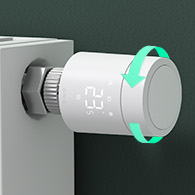S
shamone79
Hi. I am seeking advice as to a repair on my boiler. I am not a qualified plumber/ central heating engineer and I would NEVER attempt to work on the gas side of any systems fitted in my house. I am however adept at repairing electrical appliances etc and do so professionally in my line of work.
I am seeking advice as to where I stand legally if I was to replace the fan on my boiler. It has become very noisy and I have already taken the fan apart and lubricated the bearings which are the cause of the noise. It has worked fine for the last year but has started grumbling again and I wish to replace it.
Now please don't get me wrong as I am a professional in my trade and there are some jobs which I consider myself to be best left to the professionals, and I don't mind paying for the job, but removal/refitting of the fan is very simple and as the fan itself is quite pricey, I am loathe to pay someone to charge me an hours labour or whatever to undo 4 nuts. Now if the system had a fault or was inoperative then I would not hesitate to call in the professionals and leave it to them, but as for it just being the fan a bit noisy, am I able to replace this unit legally myself?
Many thanks for any advice received
I am seeking advice as to where I stand legally if I was to replace the fan on my boiler. It has become very noisy and I have already taken the fan apart and lubricated the bearings which are the cause of the noise. It has worked fine for the last year but has started grumbling again and I wish to replace it.
Now please don't get me wrong as I am a professional in my trade and there are some jobs which I consider myself to be best left to the professionals, and I don't mind paying for the job, but removal/refitting of the fan is very simple and as the fan itself is quite pricey, I am loathe to pay someone to charge me an hours labour or whatever to undo 4 nuts. Now if the system had a fault or was inoperative then I would not hesitate to call in the professionals and leave it to them, but as for it just being the fan a bit noisy, am I able to replace this unit legally myself?
Many thanks for any advice received


